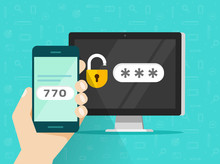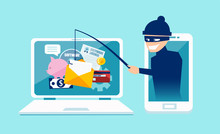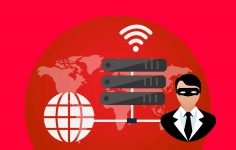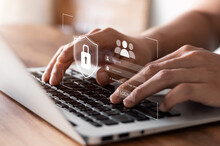Use Strong and Unique Passwords: Create strong, complex passwords for each of your online accounts. Use a combination of uppercase and lowercase letters, numbers, and special characters. Avoid using easily guessable information like birthdays or names. Consider using a reputable password manager to securely store and generate unique passwords for each account.
Enable Two-Factor Authentication (2FA):
Enable 2FA whenever possible. This adds an extra layer of security by requiring a second form of verification, such as a code sent to your phone, in addition to your password. It significantly reduces the risk of unauthorized access even if your password is compromised.

Advertisement
Be Cautious of Phishing Attempts:
Be vigilant when opening emails, messages, or clicking on links from unknown sources. Look out for signs of phishing, such as spelling or grammatical errors, suspicious email addresses, and requests for personal or financial information. Always verify the legitimacy of a communication before providing any sensitive data.

Keep Software and Devices Updated:
Regularly update your operating system, web browsers, and applications to ensure you have the latest security patches. Cybercriminals often exploit vulnerabilities in outdated software, so keeping everything up to date helps protect against potential attacks.

Use Secure Wi-Fi Networks:
When accessing the internet on public Wi-Fi networks, exercise caution. Avoid transmitting sensitive information or accessing sensitive accounts, as these networks are often unsecured. If necessary, use a virtual private network (VPN) to encrypt your connection and ensure secure browsing.

Be Mindful of Social Media Privacy:
Review and adjust your privacy settings on social media platforms to control who can view your posts and personal information. Be cautious about sharing sensitive information publicly, as it can be used for social engineering or identity theft.

Regularly Backup Your Data:
Back up your important files and data regularly. Store backups on external hard drives or cloud storage services. In case of a malware infection, ransomware attack, or hardware failure, having backups ensures you can restore your data without paying a ransom or losing it permanently.

Advertisement
Educate Yourself about Online Threats:
Stay informed about the latest online threats and cybersecurity best practices. Regularly educate yourself about common hacking techniques, phishing scams, and ways to protect your digital privacy. Knowledge is a powerful defense against cyber threats.

Remember, staying safe online requires a combination of security practices, proactive measures, and informed decision-making. By implementing these practices and being mindful of potential risks, you can significantly enhance your online security and protect your personal information from unauthorised access.